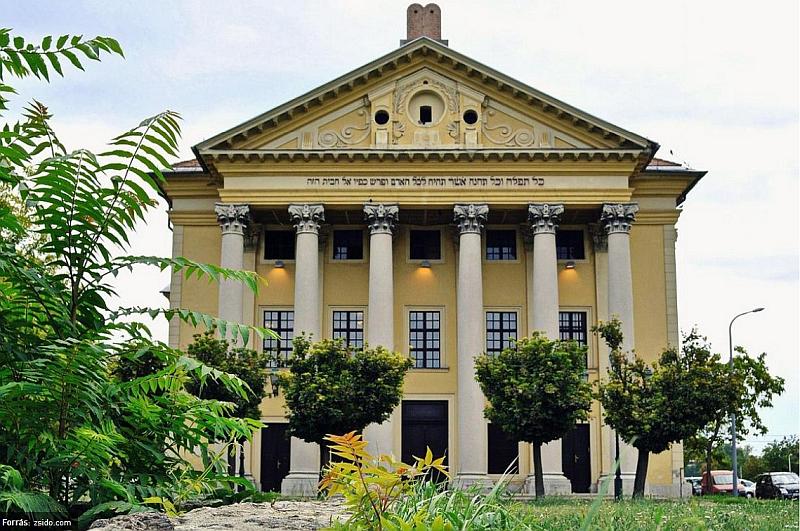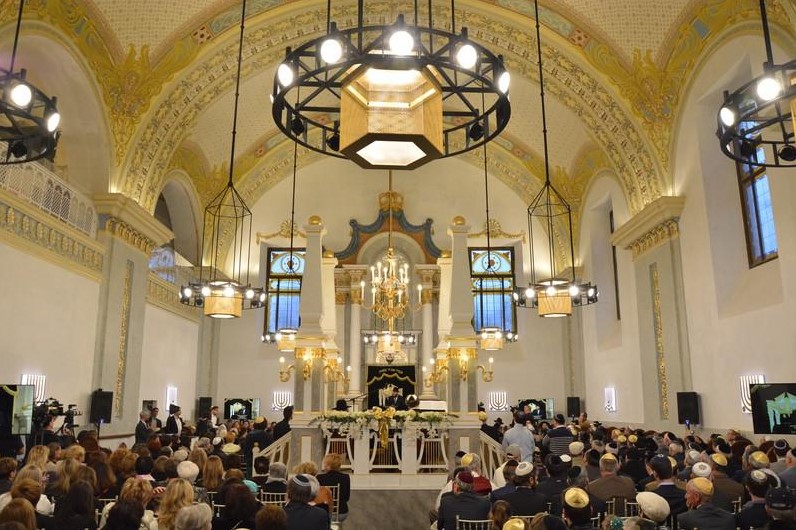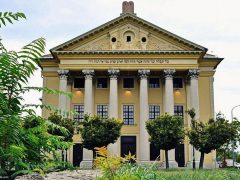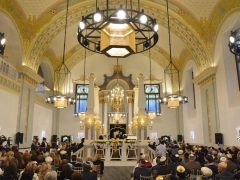Óbuda Synagogue (Óbudai Zsinagóga): A Historical Testament of Faith and Resilience
The Óbudai Zsinagóga, located in Budapest, tells a tale spanning centuries, showcasing the enduring spirit and resilience of the Jewish community in Hungary. Reconstructed in the 1820s based on Landherr András’s designs, it replaced an earlier synagogue from the 18th century. As Óbuda’s population boomed in the 18th century, so did its Jewish community. Multiple synagogues were erected during this period, each succumbing to time and elements, prompting successive rebuilds.
Historical Background
Early Beginnings
The Jewish community in Óbuda began to flourish in the early 18th century. The initial synagogue, built during this time, was a central place of worship and community gathering. However, due to structural issues and the natural wear of time, the need for a new synagogue became apparent by the early 19th century.
Design and Reconstruction
The present structure of the Óbudai Zsinagóga was chosen from designs submitted by the era’s renowned architects, Pollack Mihály and Landherr András. Despite some imperfections in its construction, it remains a testament to the community’s resilience. Landherr András’s design was selected, and the reconstruction was completed in the 1820s. The synagogue’s architecture reflects a blend of neoclassical and traditional Jewish design elements, showcasing the architectural trends of the period.
Architectural Significance
Design Elements
The Óbudai Zsinagóga features a neoclassical facade with elements typical of synagogue architecture. The building’s exterior is adorned with elegant columns and detailed cornices, while the interior boasts a spacious prayer hall with beautifully crafted wooden pews and intricate decorative elements. The ark (Aron Kodesh), where the Torah scrolls are kept, is a focal point, emphasizing the synagogue’s spiritual significance.
Historical Challenges
Though the synagogue suffered neglect after World War II, its essence remained intact. Over the decades, the building experienced various uses, from housing a museum exhibition to becoming a filming location for the Magyar Televízió. These alternative uses helped preserve the structure, even as its primary function as a place of worship was put on hold.
Revival and Current Use
Restoration Efforts
In recent years, the Óbudai Zsinagóga was rejuvenated and returned to its spiritual roots by the Unified Hungarian Israelite Congregation (EMIH). The restoration efforts focused on preserving the historical and architectural integrity of the building while updating it to meet contemporary needs. Today, the synagogue is a beautifully restored symbol of Jewish heritage and resilience.
Community and Spiritual Life
The synagogue has once again become a vibrant center for the Jewish community in Budapest. It hosts regular religious services, cultural events, and educational programs, fostering a sense of community and continuity. The synagogue’s revival has been instrumental in strengthening the Jewish presence and cultural identity in Óbuda.
Visiting Óbudai Zsinagóga
Immersive Experience
When visiting the Óbudai Zsinagóga, immerse yourself in its deep history and marvel at the architecture. The synagogue offers guided tours that provide insights into its historical significance, architectural details, and the rich heritage of the Jewish community in Óbuda.
Reflecting on History
A visit to the Óbudai Zsinagóga is about admiring a beautiful building and connecting with a community’s enduring spirit. Reflect on the centuries of history, the Jewish people’s resilience, and this sacred space’s continued relevance. The synagogue is a testament to the community’s determination to keep their faith alive through periods of challenge and change.
Conclusion
The Óbudai Zsinagóga is more than a historical monument; it is a living testament to the resilience and faith of Budapest’s Jewish community. From its early days in the 18th century to its revival in the 21st century, the synagogue has been a beacon of spiritual and cultural continuity. Visiting this beautifully restored synagogue offers a profound glimpse into the past and a celebration of the enduring legacy of the Jewish faith in Hungary.



